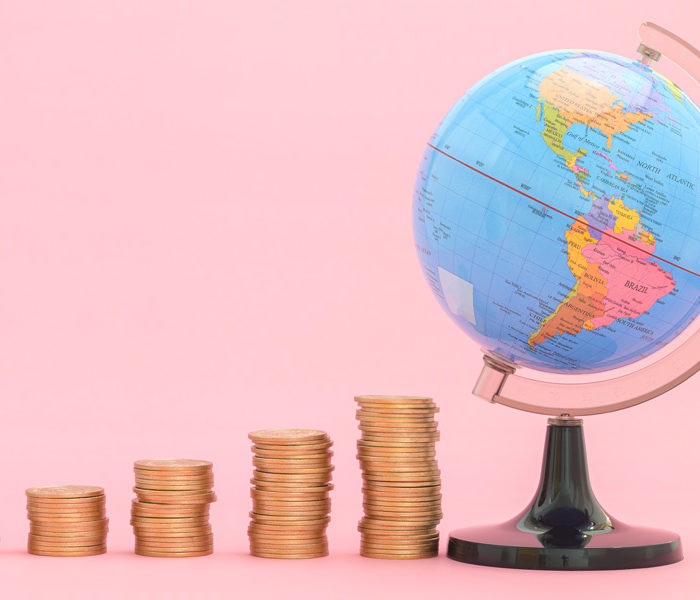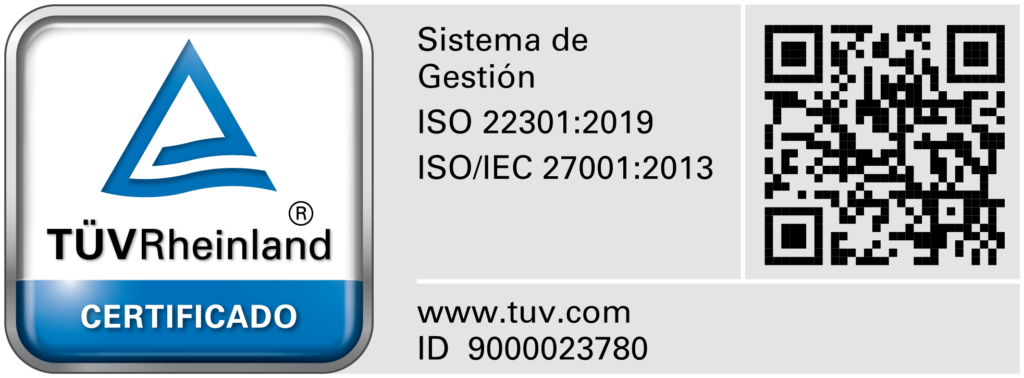What and how to achieve financial freedom
Financial freedom is a fashionable concept, because in times of economic uncertainty like the ones we are living in, inflation, job instability and other social and political problems can completely break our life plan that we have always had in mind.
Whether you are a foreign resident or a national citizen, in this article we will try to explain clearly and concisely what financial freedom is, what benefits it has and what levers must be activated in order to achieve it.
What is financial freedom?
Financial freedom could be defined as the ability to control our finances in such a way that we are able to make our savings and investments profitable in order to generate wealth, and avoid dependence on wages or subsidies.
Or to put it another way, it is to arm ourselves with the financial resources that allow us to meet our expenses without problems
Sounds great, doesn’t it? True, but it is not easy. Achieving and maintaining this state of financial wellbeing requires time, effort, reflection and knowledge, allowing us to make the right decisions and move our money responsibly.
What are the concrete benefits of financial freedom?
The 3 benefits you will enjoy are:
- Independence: having control of your finances and generating income from different sources means that you will never be tied to a paycheck or company again. If you are able to make your money work for you, you will be able to disassociate yourself from a paymaster, and generate your own wealth.
- Health: when bills, frequent payments or unexpected events are no longer a problem, your body and mind are liberated. You’ll find you’ll be stress-free, gain self-confidence, and be able to consider a lifestyle free of pressure and worry.
- Wealth: as simple as earning more money, having more capacity to buy, pay or invest. Take care of yourself and your family with responsible and intelligent finances. You will enjoy recurring income from different sources and you will be able to plan your life with a different perspective.
Financial freedom does NOT mean getting rich.
In all honesty, achieving financial freedom does not necessarily mean stopping working, taking early retirement at the age of 50 or living beyond your means.
Financial freedom, in short, is not about becoming rich.
Rather, it is about making your money work for you, making the money you save worth more over time, or going from living on one salary to living on several lines of income.
Not bad, right? Of course, if you are able to manage your money brilliantly, you will be able to
How to achieve financial freedom
Here we are going to propose several tools or tips to improve your economy and achieve the long-awaited financial freedom. Let’s start:
Saving + Reducing superfluous expenses
Make a document, detailing your income, your regular, fixed and variable expenses, and draw up a savings plan. This is the first step to clean up your accounts, and start with a solid base that will allow you to have money to save, invest or whatever you want to do.
What we are trying to avoid is spending all the money we earn, and living on a shoestring month after month.
There are several interesting methods:
- On the one hand, the 50-30-20 rule, which tells us that we cannot spend more than 80% of our income, specifically, we could allocate up to 50% to basic and unavoidable expenses, such as rent, mortgage and your utility bills, and 30% to leisure expenses, such as eating out, the gym, some activity or going on a trip. The remaining 20% will be the money you will set aside for savings, which you can invest in new assets or save for future investments.
- SMART method : this is a system that helps us to set goals that, as its acronym indicates, must be specific, measurable, achievable, relevant and achievable within a specific timeframe. If we give examples, it will be easier to understand:
-
-
- Specific: Aim for a concrete goal, not just saving for the sake of saving. For example, set a goal of paying the down payment on a flat, or having a minimum fund for emergencies.
- Measurable: Set a specific savings amount such as €100, €200, or €500, but something measurable and fixed.
- Achievable: Set a realistic goal. If you earn €1,500 a month, don’t try to save €700 as it will be difficult. Be as ambitious as you can but within your capabilities.
- Relevant: If your savings are going to be a big effort, your goals have to be worthwhile. Set a strong goal that will keep you motivated and keep you on track.
- Deadline: set yourself a date to achieve your goal; this is the way to see your progress, to motivate yourself and to achieve what you set out to do.
-
Also, what happens if your income level is low and you don’t manage to save the 20% that the 50-30-20 rule states? Some tips that can help you and that, with a lot of effort, you will have to put into practice are:
- Try to keep your consumption of water, electricity or gas to a minimum and/or optimise it in order to reduce basic utility costs.
- Look for housing that is more in line with your financial situation and reduce your rent payments.
- Nip superfluous leisure expenses in the bud, such as buying clothes, subscriptions to platforms that you don’t use much or try to eat out less.
Paying off debts
Having accumulated debts is a major obstacle to setting up a savings plan. You will find that a large percentage of your income has to go towards interest-laden monthly instalments that will weaken your ability to save. If this is your case, what we recommend, as you save, is to get rid of your debts and, most importantly, not accumulate more.
This means avoiding the use of credit cards and looking to cut back or end your bank loan or mortgage repayments as soon as possible.
To be financially free, you cannot owe money to anyone or any institution.
Get new sources of income
Perhaps it happens that, at an early stage of your financial freedom plan, your income is lower than you need to start saving and investing. In this case, your duty is to look for new sources of income, either by looking for a second job or by obtaining passive income that will gradually generate money with minimal effort, such as: participating in the crowdfunding of a project or company, opening and creating content on an affiliate blog, creating a youtube or twitch channel with content that generates income, setting up a place or home for tourist rental or coworking, or the most common way, which is to buy and sell on second-hand marketplaces.
There are solutions and ways to get that extra boost to your income, you just have to be creative and go for it!
Investing with a conservative mindset
Here are 4 conservative financial investment products that should be on your radar:
1. Fixed-rate savings accounts:
There’s nothing like the simplicity of a good savings account. Plus, high-yield savings accounts offer you decent interest on your money, without having to worry about losing it along the way. It’s like putting your money on autopilot and watching it grow little by little.
2. Certificates of Deposit (CDs)
CDs are like the reliable granddaddy of investments. Basically, you deposit a certain amount of money with a financial institution for a fixed period of time, and in return, they pay you interest. It’s a safe way to earn returns without worrying about market fluctuations.
3. Treasury bonds:
Want to invest in something backed by the full faith and credit of the government? Treasury bonds are your answer. They are basically loans you make to the government and get paid interest on it. They are also considered one of the safest assets you can have in your portfolio.
4. Real estate products:
Although it is a very variant market and fluctuates much more than others in the investment world, there has been a boom in acquiring property in recent years. One of the main purposes of this action is the intention to rent to obtain an income either in a long term rental model or in a rental model.
Investing without fear of losing
If you don’t mind taking on a little or a lot of risk and you want to try to make the most of your money, you can invest it in financial assets. Remember that investing in the stock market is not the same as investing in cryptocurrencies or in real estate investment funds, i.e. each investment product has its own characteristics and risks, so you should analyse them before defining your investment strategies. Return, risk and liquidity are interrelated. In other words, the more profitability an investment can give you, the more risk you will have to assume and, in general, the less liquid it will be.





